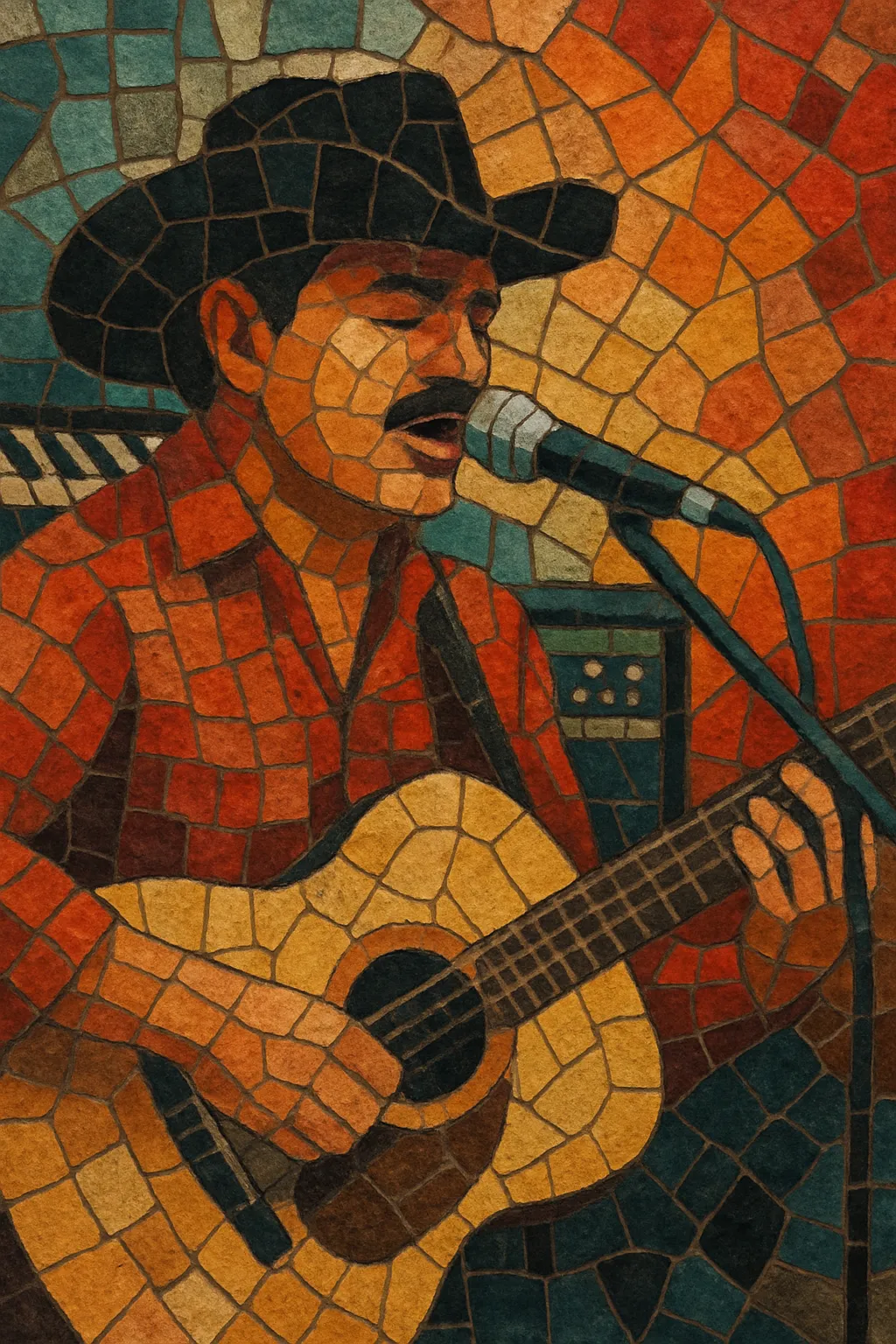Grupera is a romantic, keyboard-driven branch of Mexican popular music that blends the songwriting sensibility of the Latin ballad with rhythms and instrumentation from regional styles such as cumbia, ranchera, norteño, mariachi, and bolero.
Typically performed by "grupos" (bands) with electric guitars, bass, drums, and prominent synthesizers or electric keyboards, grupera favors melodic hooks, emotive lead vocals, and lush, reverb-heavy production. Songs often alternate between gentle ballads and danceable cumbias or ranchera-derived polkas, all wrapped in pop-friendly arrangements that made the style a radio and chart staple across Mexico and the U.S. Latino market during the 1980s and 1990s.
Grupera emerged in Mexico in the late 1970s as a band-oriented, pop-leaning way to present regional styles. Groups synthesized elements of cumbia, ranchera, norteño, bolero, and mariachi into a modern format featuring electric guitars, bass, drum kit, and—crucially—synthesizers and electric keyboards. This sound aligned with contemporary Latin pop while keeping the lyrical themes and rhythms familiar to regional audiences.
The 1980s saw grupera crystallize into a dominant radio format. Bands such as Los Bukis, Los Yonic’s, Bronco, Los Temerarios, and Los Caminantes popularized a signature mix of romantic ballads and upbeat cumbias/polkas, distinguished by expressive vocals, tight harmonies, and glossy production. Music television, cross-border touring, and U.S. Latino radio helped propel the genre to mass popularity, with major labels investing heavily and the style becoming synonymous with “grupo” bands.
By the early-to-mid 1990s, grupera acts regularly topped charts across Mexico and the U.S. Southwest. The format benefitted from specialized radio programming, televised variety shows, and an expanding live circuit. The romantic image, relatable storytelling, and danceable tracks made it a staple at family events and dance halls, broadening its audience across generations.
While subsequent waves—banda-pop, duranguense, and newer Regional Mexicano substyles—shifted mainstream attention, grupera’s songcraft, keyboard textures, and romantic focus left a lasting imprint. Many stars transitioned to solo careers in Latin pop or continued performing as legacy acts. The genre’s fusion template—regional rhythms delivered with pop-ballad polish—remains foundational to modern Regional Mexicano.
Use a band setup with lead vocals, backing harmonies, electric guitar (often with clean/chorus tones), bass guitar, drum kit, and prominent keyboards/synthesizers (pads, string patches, piano, bell-like tones). Accordion can appear on ranchera- or norteño-tinged tracks.
Alternate between romantic ballad meters and dance rhythms. For cumbia numbers, use a lilting 2/4 feel with syncopated percussion patterns; for ranchera/polka influences, lean on brisk 2/4 with driving snare and bass; for waltz-like ranchera/bolero moments, use 3/4 with a gentle, swaying groove.
Favor diatonic, song-forward progressions (e.g., I–V–vi–IV or I–vi–IV–V) that support emotive vocals. Melodies should be memorable and singable, with expressive phrasing, sustained notes, and occasional melisma. Keyboard pads and synth strings can thicken harmonies, while tasteful guitar arpeggios or light lead lines add sparkle.
Write in clear, heartfelt language about love, heartbreak, yearning, reconciliation, and devotion. Verses set the narrative; choruses deliver a strong, quotable hook. Keep imagery relatable and direct to connect with broad audiences.
Use intro–verse–pre–chorus–chorus–verse–chorus–bridge–final chorus structures. Layer backing vocals in choruses, add key changes or dynamic lifts late in the song for impact, and employ warm reverb and moderate compression for a polished, radio-friendly sheen. Balance ballads with dance-oriented tracks to mirror classic grupera albums and live sets.


